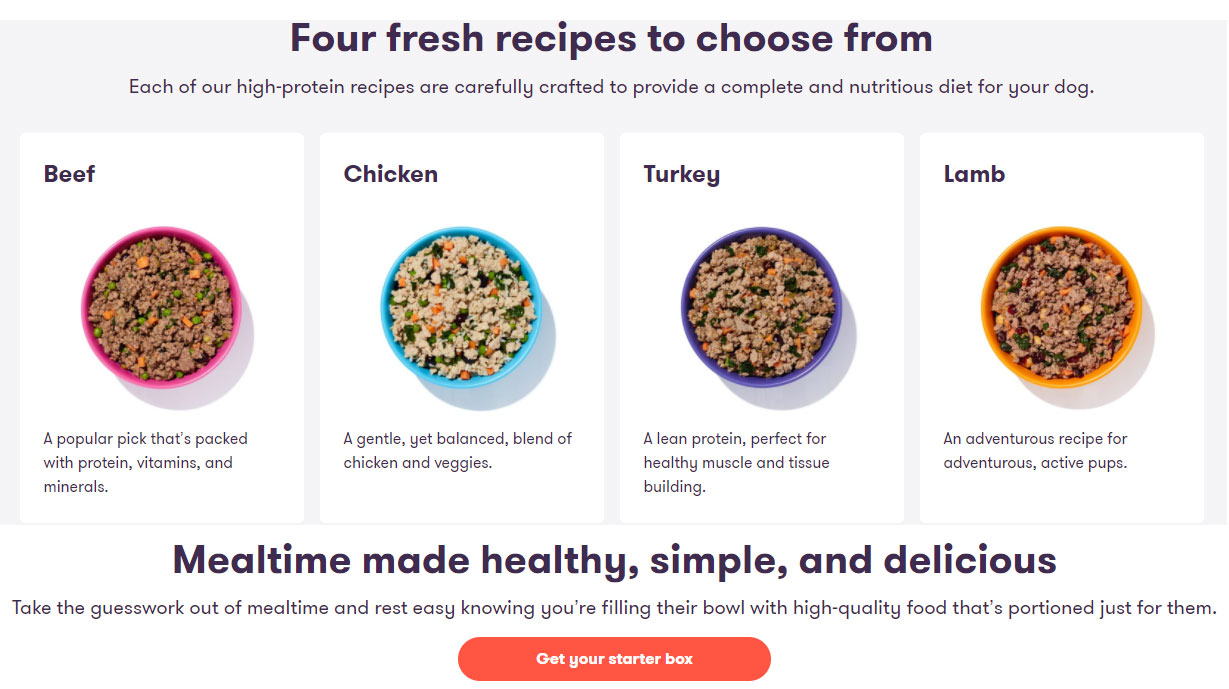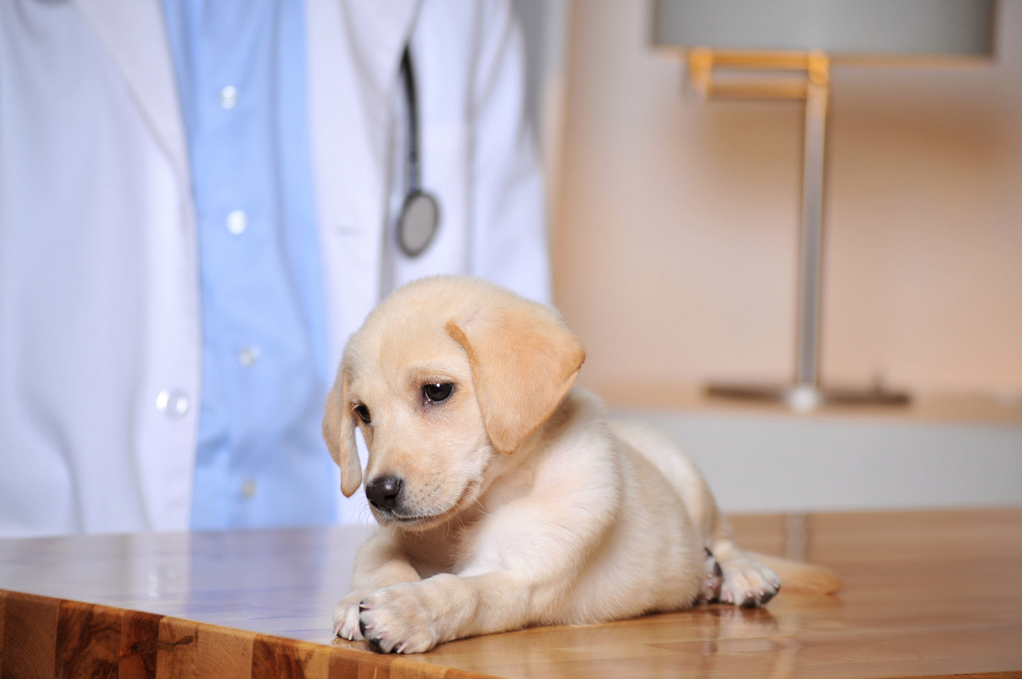How do i know if my puppy is sick
Puppies are still fragile and illnesses can have more serious consequences on their health than on adult dogs.
But there's no need to panic when your four-legged friend has a minor ailment. The best way to help your puppy when he's sick is to know how to recognize the warning signs of illness.
Recognizing the signs of illness in a puppy
A sick or injured puppy will always express his discomfort through more or less subtle signals depending on the intensity of the pain or discomfort he feels.
If some symptoms are obvious, such as vomiting, diarrhea or neurological disorders, others may go relatively unnoticed, resulting in a late detection of the problem and darkening the prognosis of the animal.
Nevertheless, it is generally possible to detect these discrete signals of discomfort by paying close attention to your puppy at all times, in order to define his usual behavior, which will serve as a reference for detecting abnormalities.
Behavioral changes in puppies
The normal behavior of a puppy varies from one specimen to another, so it is necessary for each owner to observe his animal well when he is healthy to be able to detect any unusual attitude. Start by analyzing your puppy's temperament and normal behaviour: is he calm or agitated? Is he playful or cuddly? Is he a quiet doggie, or is he more of a showman and vocalist?
Also, consider his eating habits. Is your puppy a glutton, or does he tend to be picky? Does he tend to eat anything and everything, like his toys or your things? It's also important to analyze his communication habits and the things he likes to use to make himself understood (barking, posturing, etc.).
Once you know your puppy, his habits and character, inside and out, you'll be able to easily detect any changes in his behavior that should tip you off. However, you should know that a puppy's behavior will change as he matures and as he is trained.
In this case, you will observe progressive, evolving changes that you should easily be able to explain by the learning of new life rules and the maturity of your companion. Sudden or unexplained changes are the ones that should alert you. A greedy puppy who suddenly sulks at his food bowl is certainly not doing so because he's getting sensible with age.
Likewise, a lively, restless puppy doesn't suddenly become quiet or withdrawn as he grows older, and a usually quiet little pooch doesn't become a loud barker overnight for no reason. Any change in behavior is an indication of your puppy's physical and mental health, and the psychological aspect should never be overlooked.
Beyond illnesses, a change in behavior often manifests a mental malaise due to an anxiety that can be caused by multiple causes (loneliness, sedentary lifestyle, lack of exercise, etc.).

Typical behaviors of a puppy's unhappiness
While any sudden change in behavior should alert you, there are also behaviors that are specifically symptomatic of puppy unhappiness. A pet that suddenly stops feeding, or eats with difficulty, is probably suffering from gastric or intestinal pain or an oral disorder.
If your pooch is drinking more than usual, it's often a sign of a kidney problem, diabetes insipidus or type II diabetes. A puppy that remains prostrate, tries to be forgotten and/or isolates himself is certainly suffering from physical pain caused by an injury or illness.
Conversely, it's also possible that a puppy that sticks to you more than usual, walking in your footsteps and trying - sometimes timidly - to get your attention is in great pain. A downcast, tired, "sad" puppy is also very likely to be sick or injured, and the same is true if he is suddenly irritable, aggressive or unpredictable.
Sudden or persistent uncleanliness that goes on without your puppy making any progress may also indicate a urinary tract disease or a deep psychological malaise. The "prayer" posture, where the dog holds his hindquarters up and lowers his forequarters, as if inviting his owner to play, is also symptomatic of gastrointestinal pain.
Finally, whining, complaining or crying that seems unexplained is a common way for puppies to communicate that there is a problem.
Symptoms of pain in the puppy
When the pain is acute, the puppy may present rapid and/or jerky breathing, dilated pupils or, on the contrary, a veiled look, total immobility or sudden agitation, fever, vocalizations... Acute pains are, in fact, easier to detect and to take care of, but they also require a great reactivity from the owner, because they can reveal an absolute veterinary emergency.
Chronic pain, which settles and evolves with time, is more insidious and difficult to detect, and often reveals more serious diseases than acute pain. We will then observe non-specific symptoms such as depression, sadness, weight loss or gain, unpredictable reactions...
For example, acute pain can be caused by a shock (fracture, sprain...) or an intestinal obstruction. These disorders require an emergency hospitalization, but if the dog is taken care of in time, his prognosis is very good, with no risk of relapse.
Chronic pain may hide a viral or bacterial infection, cancer or neurological disorder, which may be diagnosed late when the condition has worsened and caused other symptoms to appear. In this case, the prognosis is worse. The animal may be left with sequelae (distemper, for example), require life-long treatment (diabetes) or be at risk of relapse (cancer).
Finally, it is important to know that some breeds of dogs are more resistant to pain than others, which does not affect the severity of their disorders, but makes them even more difficult to detect. Also, small German Shepherds, for example, are used to suffering in silence without letting their master see their pain, while Jack Russels, very soft, will be more inclined to show their suffering.

How do I know if my puppy has a tummy ache?
In cases of gastrointestinal illness, typical symptoms such as vomiting, diarrhea, constipation and/or a hard, tense belly are often observed. Some symptoms are less obvious, however, such as the "prayer" posture mentioned above, but also any number of unusual postures the dog may adopt in an attempt to reduce its pain.
A lack of appetite is also symptomatic of stomach pain, and conversely, a puppy that swallows its food very quickly is potentially suffering from stomach pain. The same is true with puppies who swallow anything and everything, as this behavior sometimes illustrates their attempts to pass their stomachache by filling their stomach.
Care should be taken to distinguish between a puppy that compulsively swallows inedible objects and a small doggie that chews on everything, the latter being a normal part of the puppy's developmental phase.
How do I know if my puppy has a fever?
The best way to tell if your puppy has a fever is to take his rectal temperature with a soft-tipped thermometer, like the ones found in pharmacies for human babies. A dog's body temperature is higher than a human's, so there's no need to worry if your pooch is 39°C.
Between 38°C and 39°C, his temperature is normal, but over 39.5°C, your puppy has a fever and you should be concerned. If you don't have a thermometer handy, you can suspect a fever if your puppy is down, tired, lacks appetite or is shivering.
Fever also causes soreness, so a feverish puppy will feel pain in all his muscles and may react badly when you touch him. But don't pay attention to "people talk." A warm nose and bright eyes are not symptoms of fever, and you'd be wrong to rely on them.
How to deal with a sick puppy
Illnesses in puppies are often more serious than in adult dogs, because their immune systems are still weak and they have more difficulty protecting themselves against bacterial and viral infections. In fact, a puppy may suffer significant sequelae from an illness that is treated too late and, more importantly, may die from symptoms that a healthy adult dog would resist.
Fever is a very worrying symptom in puppies, as well as vomiting and diarrhea. All of these symptoms can lead to severe dehydration, which can result in the puppy's death.
In fact, the best thing to do when you suspect your puppy is sick is to visit a veterinarian before his symptoms get worse. While it's okay to wait 24 to 48 hours for an adult dog with moderate symptoms of illness to see if his immune system is effective enough to fight off pathogens on its own before taking him to a veterinarian, it's a risky gamble for a puppy.
A viral or bacterial infection can evolve rapidly in a body with a nascent immune system, and your puppy's condition can deteriorate dramatically in just a few hours. Loving your puppy also means taking care of his health by carefully monitoring his behavior and general condition to be able to detect an illness or injury early.
A puppy that regurgitates its kibble, accidentally urinates on your bed or has sudden diarrhea just once should not alarm you. It's common for a puppy to vomit after eating too quickly, to have trouble holding in the urge to urinate, and to swallow harmful substances that his body then rushes to expel.
In these common situations, just keep a close eye on your puppy to make sure everything is fine, that symptoms are mild and that the problem doesn't last more than a few hours.

